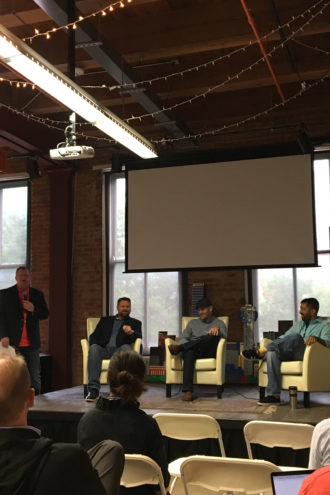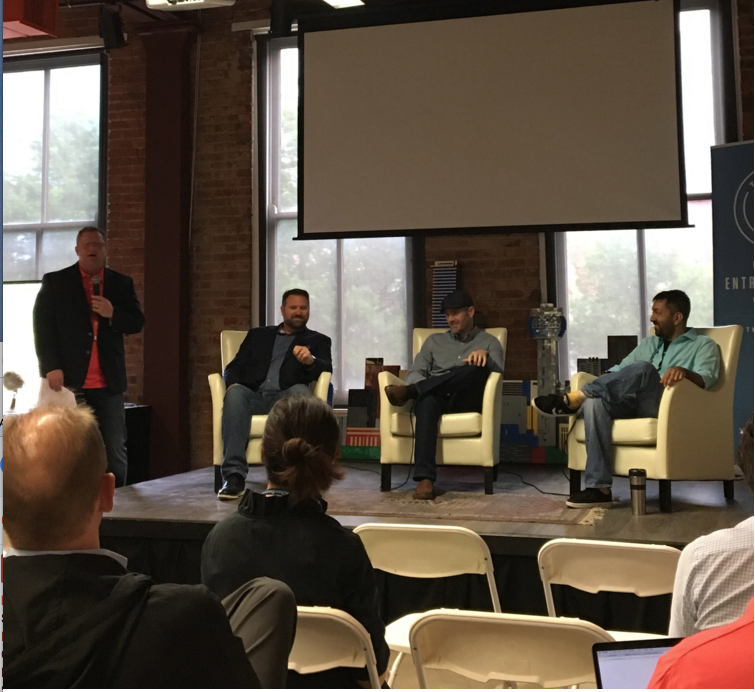
Companies have never been more ready for innovative connected devices and services, and industries like healthcare are just waiting for solutions. That was the message that came out of the Internet of Things: State of the Business panel during Dallas Startup Week.
“The marketplace is ready for [connected] products now, versus any other time in history,” Jody Guy, advanced solutions architect at Verizon, said on Tuesday. Startups just have to “understand your audience, and make sure you’re solving a problem.”
Sprinkl, a Dallas startup that developed a smart sprinkler system, did just that when it developed in 2014. Founder Noel Geren, former director of IT for telemedicine company Teladoc, built a platform that allows users to schedule and control irrigation systems from Android and IoS devices, aiding in conservation and management. Now, Geren is selling his product in Target stores and will soon appear on QVC TV, the at-home shopping network, to show off his product.
And companies are investing, regardless of what the investor market is doing, panelists said.
“I have noticed downward trend in investment overall, but a lot of large companies like us are now investing in IoT,” Guy said about the Internet of Things, a phrase referring to connected technology. “We’re still very much investing” in this space.
One of the hottest markets in the space is healthcare, Guy said, especially as telemedicine continues to gain traction. Telemedicine will be “huge” in the near future, he added.
“There’s a crosshair between healthcare and IoT,” Geren said, imagining future developments that could come from connected devices. “Like a mirror that can scan my body for cancer.”
But regardless of the technology, startups have to understand two key components if they want to launch a successful company within the space, said Adam Lotia, IoT product manager at Irving-based Bioworld Merchandising. They need to know what value their product adds by having connected capabilities, and they have to successfully educate the market on what they’re getting and why it’s worth the price.
“You can have a great idea that’s terribly executed,” he said, mentioning the connected toaster, which panelists said became known as an overpriced useless piece of technology. “You always have to look at the market.”
Once a solid need and value add for a product is identified, IoT startups have an advantage in the market, said Guy, as many pieces of the solution are likely already out there. So instead of starting from scratch, startups can build on the foundation that’s already in place.
Though IoT startups can face a multitude of unique challenges—manufacturing the device, dealing with overhead, and defining the product to the market—there’s one question that should rise above all the rest, Guy said. “The biggest question is does anyone want it?” he said. “Does the product make lives any better?”
“The consumer will drive the business,” Lotia added, “and the business will drive the consumer.”






